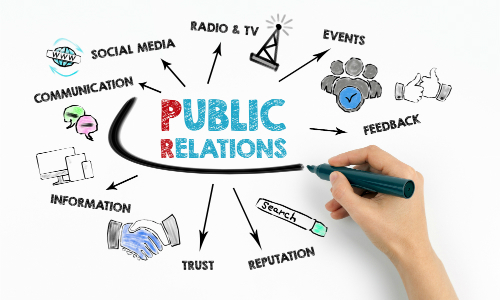
Statistics
Statistics is a versatile and rewarding career choice that involves the collection, analysis, interpretation, and presentation of data to support decision-making in various fields. Statistics, as a career choice, offers exciting opportunities for individuals who possess a strong analytical mindset and a passion for data analysis. This field plays a vital role in various sectors, including finance, healthcare, market research, and government, making statisticians highly sought-after professionals in today's data-driven world.
Statisticians can specialize in various fields, including biostatistics, econometrics, environmental statistics, sports analytics, and more. Choose a specialization that aligns with your interests and career goals. A career in statistics can be intellectually stimulating and financially rewarding. It offers a wide range of opportunities across industries, making it a valuable skill set in today's data-driven world. However, it's important to continually enhance your skills, stay updated with industry trends, and maintain a commitment to ethical data handling and analysis.
As statisticians continue to play a crucial role in data analysis and decision-making, the demand for their expertise remains high. By pursuing the appropriate educational pathway, developing relevant skills, and identifying suitable employment areas, individuals can embark on a rewarding career journey in statistics.
Role Desciption
- Data Analyst: Analyzing data, designing surveys, and interpreting statistical models to provide insights for decision-making.
- Statistician: Collecting and interpreting data through statistical analysis, creating predictive models, and developing strategies to solve complex problems.
- Research Analyst: Designing and conducting surveys, experiments, and market research studies to gather data, analyze trends, and draw meaningful conclusions.
- Business Analyst: Collaborating with clients to identify business needs, analyzing data to provide strategic insights, and presenting findings to stakeholders.
- Actuary: Assessing and managing risks using mathematics, statistics, and financial theory to determine insurance premiums, pension benefits, and investment strategies.
Eligibility
Route 1
- 10+2 in any stream with Mathematics
- B. Sc in Statistics/ B. Stat
- Masters in Statistics
Route 2
- 10+2 in any stream with Mathematics
- B. Sc in Mathematics
- Masters in Statistics
Route 3
- 10+2 in any stream with Mathematics
- B. Tech in Mathematics and Computing
- Masters in Statistics
Significant Statistics:
Professional statisticians are in high demand in India and around the world.Those with a statistics degree can pursue careers in finance, analytics, software development, actuarial science, or can join Indian Statistical Service. Indian Institute of Statistics are the premium institutes in India for study of Statistics.
Pros/Cons
Pros:
- High demand: With increasing reliance on data-driven decision-making, statisticians are in high demand across industries.
- Lucrative Salaries: Statisticians generally earn competitive salaries compared to other professions.
- Diverse Career Options: Statistics opens doors to multiple career paths, including academia, research, consultancy, and industry.
- Intellectual Stimulus: With a focus on data analysis and problem-solving, statisticians often face intellectually stimulating challenges.
- Impactful Contributions: Statisticians play a crucial role in shaping policies, improving processes, and driving innovation.
Cons:
- Steep Learning Curve: Statistics is a technical field that requires a solid mathematical foundation and continuous learning to stay updated.
- Complex Analysis: The intricacies of statistical analysis and modeling might be challenging for some individuals.
- Extensive Data Processing: An abundance of data requires the ability to handle large datasets and statistical software packages effectively.
- Pressure of Deadlines: Certain roles in statistics might involve working under tight deadlines, especially in the consulting industry.
- Limited Scope without Continuous Learning: Staying relevant in the field requires continuous upskilling and adaptation to new methodologies and technologies.
Leading Professions
View All
Statistician
Statisticians design sur...
12.0LPA

Data Scientist
Data scientists are resp...
12.0LPA

Actuary
Actuaries use statistica...
10.0LPA

Biostatistician
Biostatisticians work in...
12.0LPA

Quantitative Analyst
Quantitative analysts, a...
20.0LPA

Statistical Programmer
Statistical programmers ...
11.0LPA

Market Researcher
Market researchers colle...
6.0LPA

Operations Research Analyst
Operations research anal...
8.0LPA
CAREER VIDEOS
Career Path
10+2 in any stream with Mathematics
1 Steps
Skills
Recruitment Area
Indian Statistical Service ,
Government Agencies ,
Statistical departments ,
Research organizations, and Planning commissions ,
Banking and Finance ,
Healthcare Industry ,
Market Research ,
Academic Institutes .
Recruiters
Indian Statistical Institute (ISI) ,
National Sample Survey Office (NSSO) ,
Reserve Bank of India (RBI) ,
Tata Consultancy Services (TCS) ,
Nielsen India .
Explore Colleges
Exams & Tests
Interested? Take the next step for this career
10+2 in any stream with Mathematics
- 1 Steps
Skills Needed
Exams and Tests
Recruitment Area
Indian Statistical Service ,
Government Agencies ,
Statistical departments ,
Research organizations, and Planning commissions ,
Banking and Finance ,
Healthcare Industry ,
Market Research ,
Academic Institutes .
Recruiters
Indian Statistical Institute (ISI) ,
National Sample Survey Office (NSSO) ,
Reserve Bank of India (RBI) ,
Tata Consultancy Services (TCS) ,
Nielsen India .



















